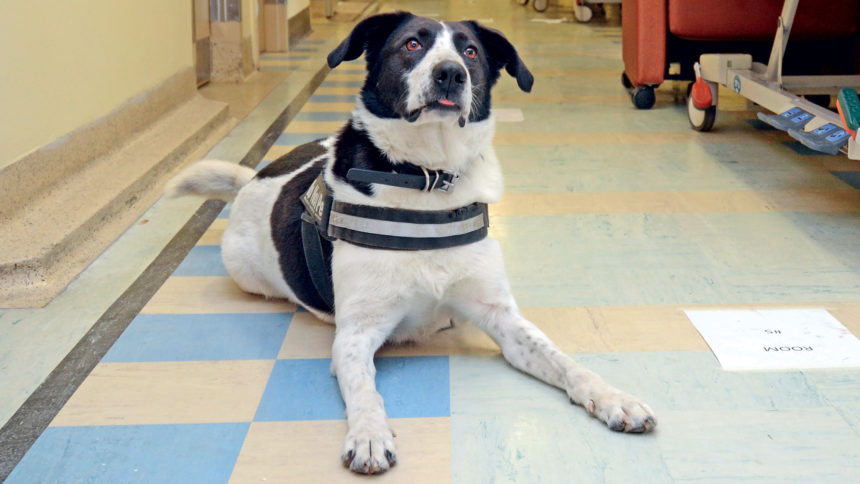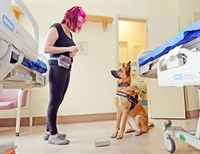
Dogs have previously shown promise in sniffing out bacterial infections, but a new Canadian study is walking those assertions back.
Investigators with the Michael Garron Hospital were recently the first to compare the success of two different canines in sniffing out the debilitating bacterial infection Clostridium difficile. Their results, published this month in Open Forum Infectious Diseases, found that while the two dogs correctly sniffed out the bacteria 85% of the time, they did not agree with one another enough to make the method reliable.
“We’re talking about a highly-transmissible and dangerous bacteria, and when people’s lives are at stake, you can’t be swayed by the cuteness or affection of an animal,” Jeff Powis, M.D., infectious disease specialist and senior author of the study, said. “We need a test that consistently gives us results we can trust. We wish the lab provided results more rapidly — like a dog could — but who’s going to accept the dog’s result if it’s not consistently reliable?”
 Past studies, out of Canada and the Netherlands, have shown that individual dogs could be trained to root out C. diff, but researchers noted that no one had ever tested whether dogs could agree on their findings.
Past studies, out of Canada and the Netherlands, have shown that individual dogs could be trained to root out C. diff, but researchers noted that no one had ever tested whether dogs could agree on their findings.
Hospital researchers deployed two trained rescue dogs — border collie Chase and German sheppard Piper — in an unused wing of the facility. Positive and negative C. diff specimens were hidden in small boxes in empty rooms, and the dogs were trained to sit if they thought the bacteria was in one of the boxes, or move on if they did not.
Lead author and physician assistant Maureen Taylor said better results may arise by testing out a larger number of dogs, but she doubts canines will ever be reliable enough to put into regular use in healthcare.
“We saw these dogs work very hard with their trainers to learn how to detect C. difficile,” said Taylor. “But at the end of the day, they are dogs, and easily distracted by stuff that’s just part and parcel of the hospital environment – food trays, friendly family members, even the toilets.”




